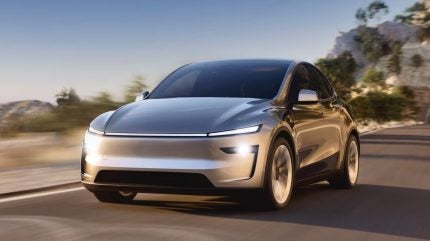
Sales of imported light passenger vehicles in South Korea expanded by over 13% to 24,064 units in October 2025, up from 21,249 units a year earlier, according to registration data released by the Korea Automobile Importers & Distributors Association (KAIDA).
Despite the ‘Chuseok’ national holidays, the import segment continued to grow strongly last month, driven by strong demand for battery electric vehicles (BEVs) and hybrid electric vehicles (HEVs). By contrast, domestic deliveries by the country’s five main automakers combined plunged by 17% to 101,475 units last month.

Discover B2B Marketing That Performs
Combine business intelligence and editorial excellence to reach engaged professionals across 36 leading media platforms.
In the first ten months of 2025, import sales increased by over 15% to 249,412 units, up from 215,980 units a year earlier. German-owned brands accounted for 59% of total import sales year-to-date, with 147,735 units combined.
BMW led the market with a 6% rise to 64,015 units, while sales by its Mini subsidiary declined slightly to 6,262 units. Together, the two brands accounted for 28% of total import sales so far this year. Mercedes-Benz sales declined slightly to 54,121 units, while Volkswagen Group reported an 8% rise to 23,045 units, thanks mainly to strong performances by Porsche and Audi.
US EV maker Tesla saw its sales surge by 93% to 47,962 units year-to-date, helped by the recent launch of its new lower-cost Model Y, while Volvo’s deliveries declined by 3% to 11,929 units. Toyota’s ten-month sales were slightly higher at 7,887 units, while its Lexus division enjoyed a 12% rise to 12,855 units.
Chinese automaker BYD, which officially entered the market earlier this year, has delivered 3,791 vehicles so far. The company said it aims to have 30 sales outlets operational by the end of the year.
Local reports pointed out that a growing number of import brands have introduced direct online sales, a strategy that helps reduce dealer selling costs and vehicle prices, while increasing price transparency for customers. Tesla has just a handful of showrooms in the country for offline promotional purposes, relying mainly on online sales for its strong growth this year. Mercedes-Benz, Polestar and Honda have also introduced direct sales channels in the country.






